Biography
The journalist, satirik and the enlightener Nikolai Novikov entered the story not only as the founder of numerous prints, the author of the accusatory articles and the organizer of schools, but also as one of the first political prisoners in Russia. His arrest occurred during the heyday of the talent and publishing activity. After leaving the Novikov prison, it was not possible to resume work, however, that he had managed to write, enough for the whole generation of descendants thanked him.Childhood and youth
Nikolai Ivanovich Novikov was born in the Moscow province, in the estate of Tikhvinsky-Avdotino, April 27 (May 8) of 1744. He came from the noble family, his father was a retired fleet officer. The literacy of the boy taught the village decek, later Nicholas was given to the metropolitan gymnasium. The young man learned there for 5 years and was excluded for laziness and absenteeism.
Returning to the parents and lived with them for another 2 years, he went to the service of the Izmailovsky regiment, to which was attributed at birth. Military career was successful, Novikov soon produced in Unter-officers, but he himself began to understand that his soul lies not to the army, but to science and book business. By this time, his first literary experiments belong. Nikolai issued 2 stories, independently translated from French, and sonnet.
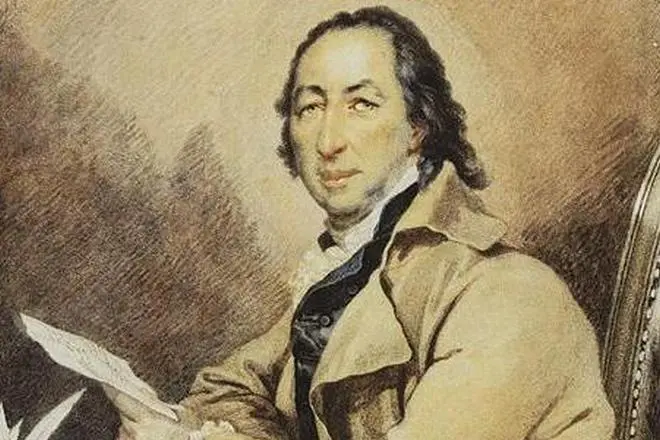
In 1767, Novikova instructed the work in the Commission, which made an updated code of "New Code" laws. He was among the young people who had to lead the minutes of meetings. It was a very important thing under the personal control of Catherine II, and the inclusion in the commission was recognized by its "special nobleman with the abilities."
There, Nikolai Ivanovich was able to deeply explore the problems of modern Russian life, which laid the foundations of his educational views. The Empress noticed a capable young scientist, so even after the translation from the Izmailovsky Regiment in Muromsky Novikov remained working in the Commission.
Journalism and Publishing
From this work he was fired in 1769. The compilation of "deposition" was completed, and Nikolai Ivanovich moved to work by the translator into the collegium. In May of the same year, the famous magazine "Cone" begins to be published.
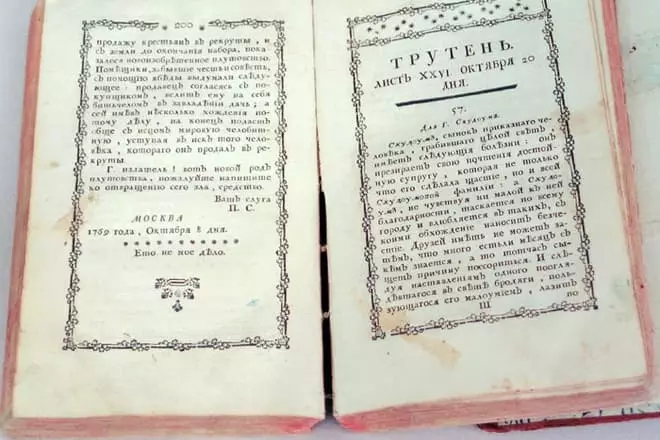
On his base, Novikov preliminarily received permission from the Empress, however, he led his own, absolutely not coinciding with the wishes of the ruling top. Catherine II recommended publishers of such magazines to "expose vices, but not people" (which was closer to the humor, than to satire), but Novikov dare to print frank criticism. The "drone" epigraph became a line taken from Basni Sumarokov:
"They work, and you are their work."The phrase asked for the tone to all publications in the publication, it was an open blasting of existing orders depicting the nobility in black. Novikov created a whole gallery of fictional images - greedy, caricature of coarse landowners of Snown and Unreasada, voice of the people in the face of the Pravddlyovov, who openly elevenized with the authors of pro-government publications. Anyone who read the "Trouten" could make sure that there were no justice in the Russian Empire, nor of the order.
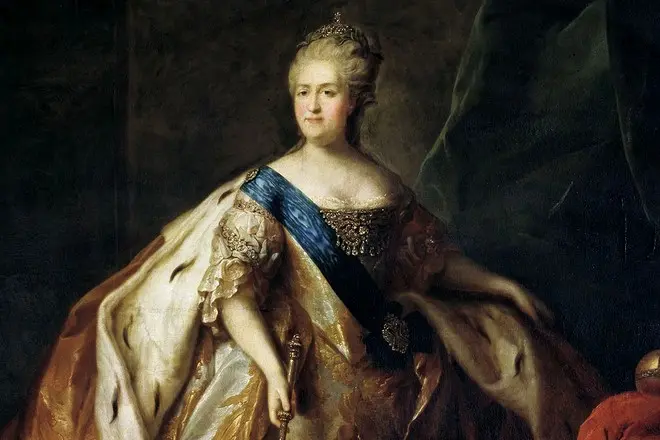
Nikolai Ivanovich paid special attention to the idea of preserving the Russian national culture, sharply speaking against the "Foreigns" and having ridiculed the passion for the nobility by French and German customs. At the same time, his main target was serfdom: with the help of numbers and facts, he painted an unsightly picture of peasant fate and life, rampant arbitrariness and impunity.
Ekaterina II, of course, tried to prevent such audacity as soon as possible. Unable to half aim with him on an equal footing, she simply took advantage of the authorities and a special order in 1770 closed the magazine. It did not stop Novikov, but forced him to be careful. He became the editor of several more magazines. "Pleaspel", "Painter", "Wallet" still overlooked an opposition character, but the tone of publications was replaced by more discreet.
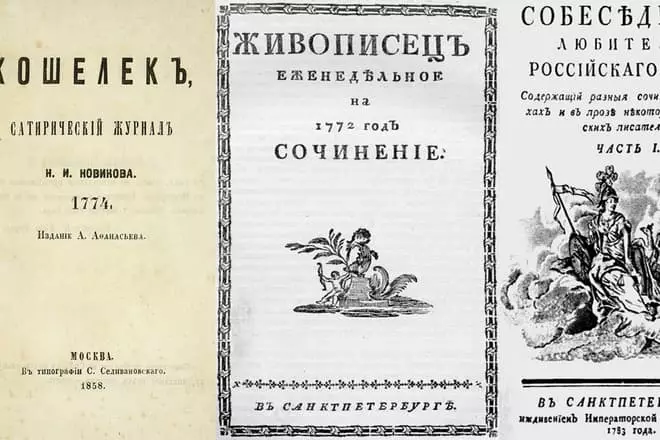
"Emptyel" quickly suffered the fate of the "drone", but the "painter" and his followers managed to hold out longer. In the new editions of Novikov, the landlords were still crippled, but did not go to the revolutionary appeals. It would be more correct to call his political position by noble liberalism.
The work of the enlightement became the beginning of a fundamentally different stage in Russian journalism. It was a new type satire, saturated with fresh techniques of reality, brave and uncompromising. From the old schemes, it was distinguished by a variety of genres and the presence of live verbal portraits.
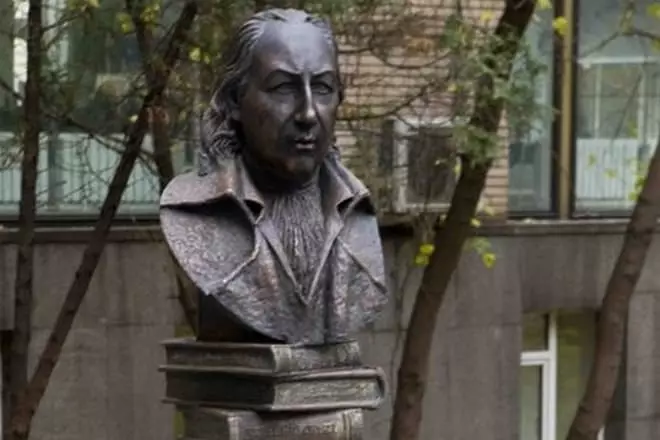
In 1774, Nikolai Ivanovich resigned and devoted himself to literary work. After 3 years, he became the founder of the magazine "Morning Light", laid down the direction of philosophical journalism in Russia. Gradually, the publisher departed from satire and turned to the educational, changing the accusatory tone to morally intelligent.
In 1779, Novikov moved to Moscow and began to publish the "Moscow Vedomosti", a newspaper created on European samples, which combined news information with analytical articles. Instead of the "Morning Light", the magazine "Moscow Monthly Edition" soon began to be published, and the Vedomosti acquired the application from the selected articles. Later, Nikolai Ivanovich began to produce specialized journals "Children's reading", "Economic Store", "Library for the Lady Toilet", everywhere consistently conducting his educational program.
Masonry
After moving to the capital, the friends of Nikolai Ivanovich introduced him to the Masonic movement, which later became an important point of his biography. Invitation to join the Masonic ranks, he received back in 1775, but for a long time doubted, without quite understanding the teachings and views and not wanting to associate himself to a small oath.
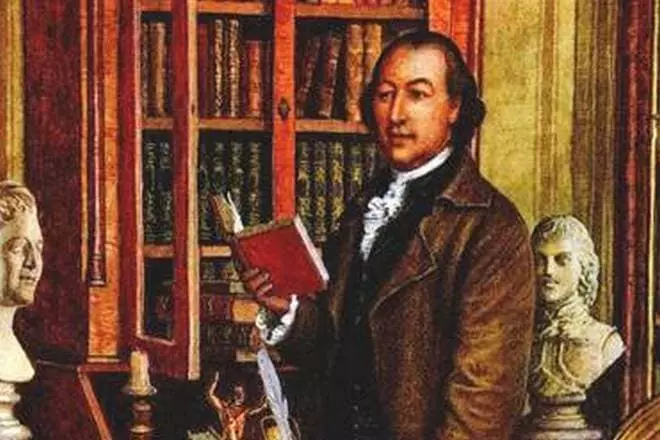
Masons, however, passionately wanted to get it to themselves and even previously told him about the content of the first 3 steps, which contradicted the existing rules. In the end, Novikov agreed, but soon he moved from the Elaginskaya system to the Rehelhel, where the participants were passionate about the soles of self-knowledge and morality.
Personal life
There was almost no time for his personal life of the writer, and the desire to spend time on heart matters too. With the future wife of Novikov met in the house of an old friend Nikolai Trubetsky. Alexandra Egorovna Rimskaya-Korsakov had the owner of the house at the niece. The marriage was concluded quickly, but was not particularly happy, since there was no love between the spouses. In 1791, Alexander died, leaving Nicholas Ivanovich three children.
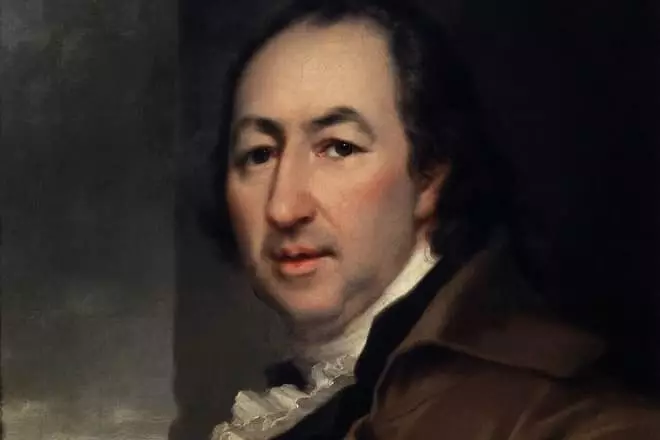
All descendants of the couple suffered from Paducha (epilepsy). She opened with all children at the same time after another search, when the hussars burst into the middle of the house and took the father and took the father.
Death
By 1772, the restless publisher finally exhausted the reserves of patience of Catherine II. It all started with the ban on the rental of printing house, the closure of the publisher and search in the articles of Novikov "Yersie and Kramols", then there were challenges for interrogations and, finally, conclusion in the Shlisselburg fortress.
After 4 years, Paul I freed the scientist, but forbade it to be published and participate in social activities. Subsequently, the position of Nikolai Ivanovich did not improve, and gradually about him, deprived of the right to vote, began to forget.
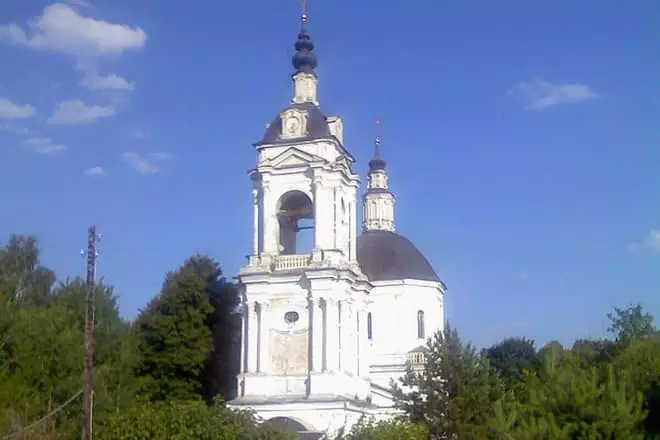
After the liberation from the fortress, the Oblaning Publisher was informed of the terrible news: while he was in prison, all the property belonged to him was sold from the auction. With the help of friends and numerous letters in the instance of Novikov returned the estate of Avdotino, but the buildings were in such a deplorable state that all the remaining money and forces had to be returned.
Large debts were formed, and the repayment of the writer was repayment of interest on the mortgage. Every year in December he had to literally scrape the desired amount and constantly live in fear that the property would go with the hammer.
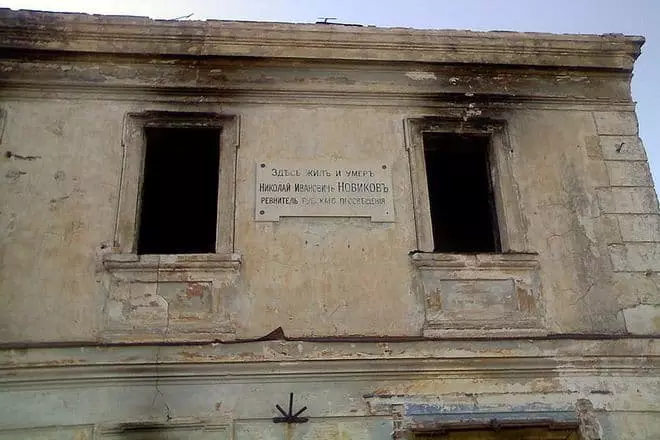
1817 issued for Novikov especially difficult - the debt barely managed to pay at the last moment. From strong excitement, he was defeated by stroke, accompanied by the loss of memory and became July 31 (August 12) of 1818 the cause of death.
After the death of Nikolai Ivanovich, his family remained in a deplorable financial condition. Nikolai Mikhailovich Karamzin even filed the emperor to the petition, where he was the contribution of the deceased in the business of Russian enlightenment, urged to complicate and pay the debts of Novikov, but Alexander I refused, and the estate was sold on public auctions.
